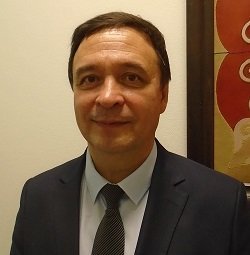Wikipedian Timerkhan Shaykhutdinov: ‘If a reader saw a mistake, it is necessary to remember one Wikipedia rule’
Who is to blame and what to do with inaccuracies on Wikipedia about Tatarstan and Tatarstan residents and why is Wikipedia in Tatar needed?
When looking for information about Tatarstan, historical events of the republic or its famous people, Wikipedia users have often had to face wrong and inaccurate data. It is factual data in dates, misspelling, especially in Tatar. A date related to events in Tatarstan is often provided a link to famous people from neighbouring Bashkiria. What’s the reason for such chaos and can the data from Wiki be considered encyclopaedic? We asked experts and Tatarstan volunteer Wikipedians these question.
“Whoever on the planet can become an author of publication”
Who is to blame because there is a mess with data about Tatarstan, its historical, political activists, scientists, public figures? As one of the active Tatarstan Wikipedians, honourable wikimedian Farkhad Fatkullin who has written over 1,000 articles in Tatar in the last 10 years thinks, the public domain of the resource is the case. In general today Wikipedia has more than 417,000 publications in Tatar.

One of the examples Fatkullin put is about the mess with the words “His Majesty,” “High Excellency,” “Excellency,” and “Right Reverend.” He gave an example: one of the authors of a publication about the king of Saudi Arabia, the guardian of two holy sites, wrongly wrote “excellency” instead of “majesty.” In fact, it is already a mistake.
The experienced Wikipedian thinks that with time, if a lot of Wiki volunteers of the community deal with a topic, it starts to excel others in many indicators. For instance, he noted, the publications of public information about medicine in English on Wikipedia is better than anywhere else.
Farkhad Fatkullin admits that publications and editing on Wikipedia is rather a hobby for him, but his goal is to develop and popularise his mother Tatar language. He writes his corrections and new articles mainly in Tatar even though he fluently speaks another five languages. The Wikimedia movement member from Tatarstan tries to get information for his editing only from reliable and reputable sources. For instance, he recently added those who are indicated as current governors of urban districts and municipalities of Tatarstan on the official website of the republican government to a Tatar list of governors.
“Citing Wikipedia in the scientific environment is a bad manner”
Director of the Marjani Institute of History Radik Salikhov also sticks with the opinion that the data from Wikipedia certainly needs to be verified and one absolutely shouldn’t cite them in research.

Also, Wikipedia, Radik Salikhov stressed, is quite red-tapped even though it has a status of “popular encyclopaedia”: “The one who started to moderate it first determines the game rules. Hence, a lot of mistakes and other drawbacks, including links to unverified sources. In general citing Wikipedia in the scientific environment is a bad manner.”
In Tatarstan, it has been repeatedly voiced that it is necessary to invite experts in philology, history, geography and other scientific areas to the work with Wikipedia to rule out chaos in facts and numbers. However, only activists and volunteers still add data to the resource. In Bashkiria, the director of the Institute of History noted, a lot of public figures are attracted to the publications on Wikipeia.
“Though they have been moderating Wikipedia and have certain rights, the quality of articles from the perspective of science, history is still raises doubts,” Salikhov indicated. “What is more, they allow people who have a different opinion to make amendments. It turns out to be some totalitarianism in science. So it is not a free resource.”
As Salikhov thinks, republican scientific structures once were going to actively learn to use Wikipedia, including the Institute of Tatar Encyclopaedia. But much time has been lost, the historian noted. He named the project Tatarika led by the Institute of Tatar Encyclopaedia of the Tatarstan Academy of Sciences as a great alternative to Google’s project and a more topical place with different data about Tatarstan.
“At this stage today, I think it is the right decision because when it comes to Wikipedia, the ideological content is unclear, the final goals aren’t known, and the quality of scientific content is very low there now,” says the historian. “Tatarika in turn is based on the results of research of academy institutes, university centres of Tatarstan and Russia. It is a purely scientific product recognised by the scientific community unlike Wikipedia, which isn’t recognised by the scientific community.”
“The one who saw a mistake is to blame”
Timerkhan Shaykhutdinov is one of the youth Tatarstan Wikipedians. He is 21 and he has been publishing new articles and editing existing ones for 6 years. By his estimate, the number of his edits surpasses tens of thousands. Moreover, he works with data in three languages at once — Tatar, Russian and English. According to Shaykhutdinov, a desire to put his knowledge and information that can be useful for other people and generations inspired him to deal with such work. Reflecting on why Tatar or republican figures on Wikipedia are considered Bashkir, he notes is a tough issue.

As for discrepancies in factual data that is sometimes seen in articles about Tatarstan and its people, the young Wikipedian is categorical about it: “If a reader has faced such a fact, it is necessary to remember one simple rule of Wikipedia: it is an encyclopaedia that anybody can edit. And this rule was created if somebody all of a sudden makes a mistake — it can be an ignorance factor or simple misspelling — the one who saw the mistake is to blame for this mistake. This person has the total right and possibility of fixing this mistake.”
So Shaykhutdinov thinks the one who will correct the mistake will help other Wikipedia readers to get accurate information.
Article about Tatar Wikipedia as condition to add the local phenomenon to the global base of knowledge
According to Farkhad Fatkullin, mainly people living in Tatarstan wrote in Tatar among those known in the Wikipedia community, but the geography of the authors is also different. In general there is no data about how many volunteers in the republic write on Wikipedia because the data is published anonymously, also, a Wikipedian can have as many accounts as possible. But there are school and university students, teachers, librarians among them.
At the same time, Wikipedia has general statistics on every section. So public deidentified data of Wikipedia reads that this July the Tatar-speaking section had 130 active editors, in January 2021, there were 265. As for new articles and edits, statistically, the biggest number in the last two years was published in January 2022 — nearly 80,000. A. Khamidullin is now considered the most fruitful editor of articles in Tatar — he has made over 680 edits.
Fatkullin says Kaybitsy has its own Wiki club. Two young activists from there started to add data about local museums, mosques and churches, natural and historical phenomena to the world history for AI systems and voice assistants. At the same time, somebody has repeatedly tried to create a community of Wikipedians in Tatarstan but didn’t turn out to be successful: “I haven’t yet seen people interested in financing them in a centralised way, there were only prizes.”
Winners of 17 different contests held from 2020 to 2021 among Tatar-speaking Wiki volunteers got the prizes. However, Farkhad Fatullin sadly says there haven’t been prizes anymore.
Still, the republican Wiki community writing in Tatar was internationally recognised in 2018. “Then the youth from now dormant Selet Wiki school was interested in participating in international projects on behalf of the whole Tatar-speaking Wiki community, and we went through the bureaucratic procedure of Wiki sign up so that they had such an opportunity,” the mentor of young Tatarstan Wikipedians shares.
In his opinion, it is easier and more effective to develop the themes about Tatars, the Tatar language and Tatarstan today directly in Wiki data together with Tatar-speaking Wikipedia. Also, it is easier for Bashkortostan to start its pages in Bashkir, for Chuvashia in Chuvash, for Chechen in Chechen, for Yakutia in Sakha. This will allow avoiding bureaucratic procedures when it is necessary to prove the meaning and reliability of sources, which is happening now in publications about Tatarstan and its people.
“Now the contribution to strengthening economic positions of the regions is now coming to the fore because a bigger focus is made on the possibilities of Wiki data — the presence of an article in Tatar Wikipedia is a condition to include and add a phenomenon that is important for the local population to this global base of knowledge. And here the independent Kaybitsy Tatar-speaking Wiki club is on point — people are proud of their land, history and modern time and want the whole world to know about it. While the Tatar language and Wiki data will help them.”